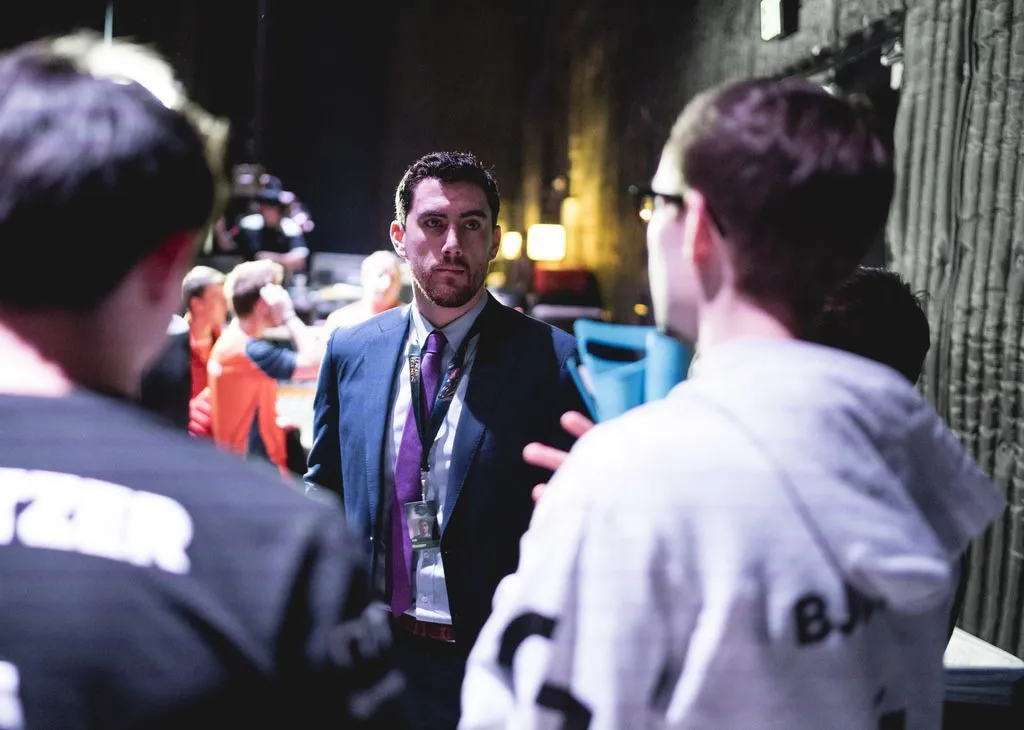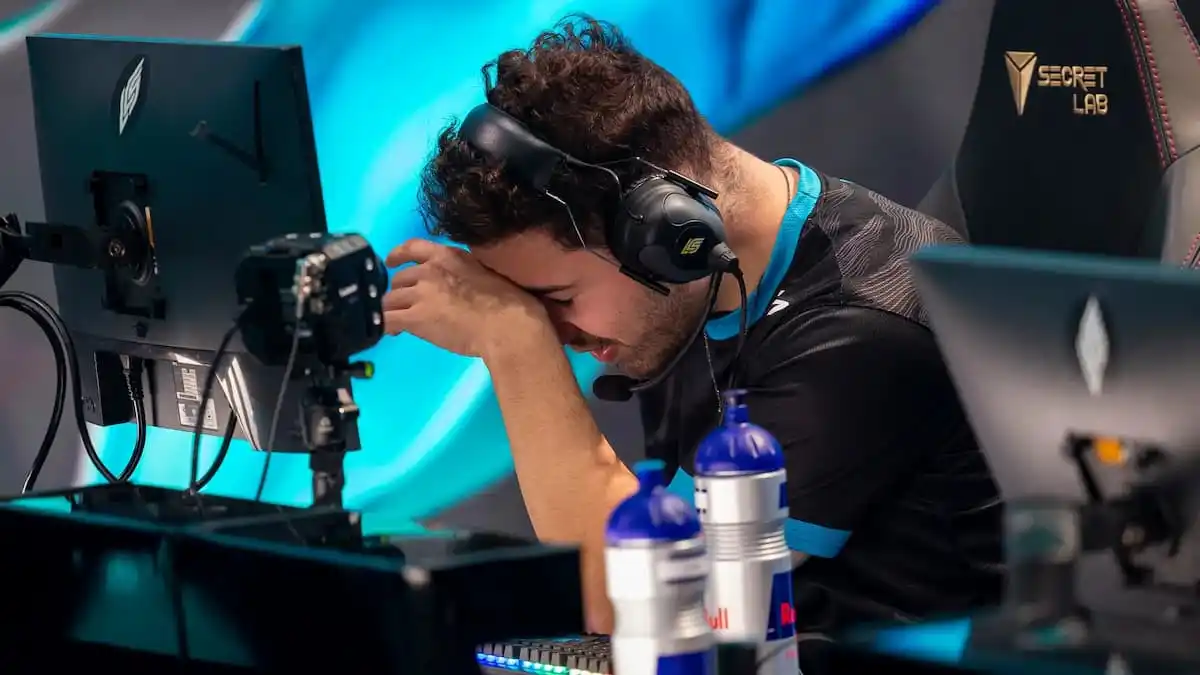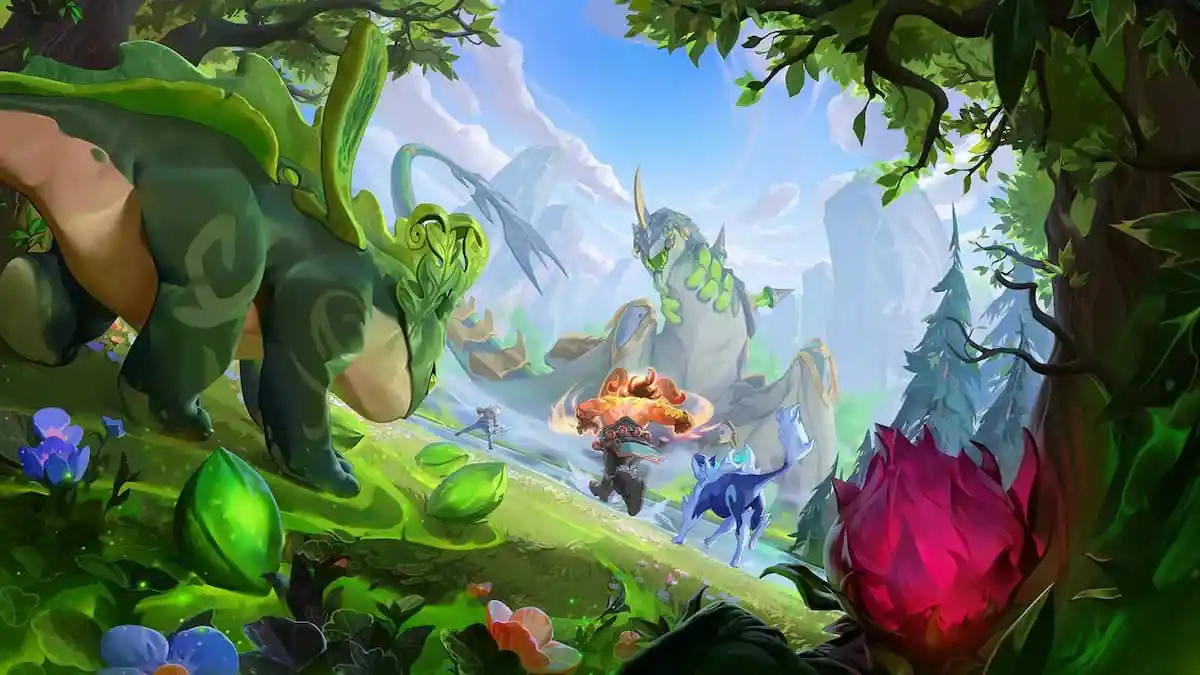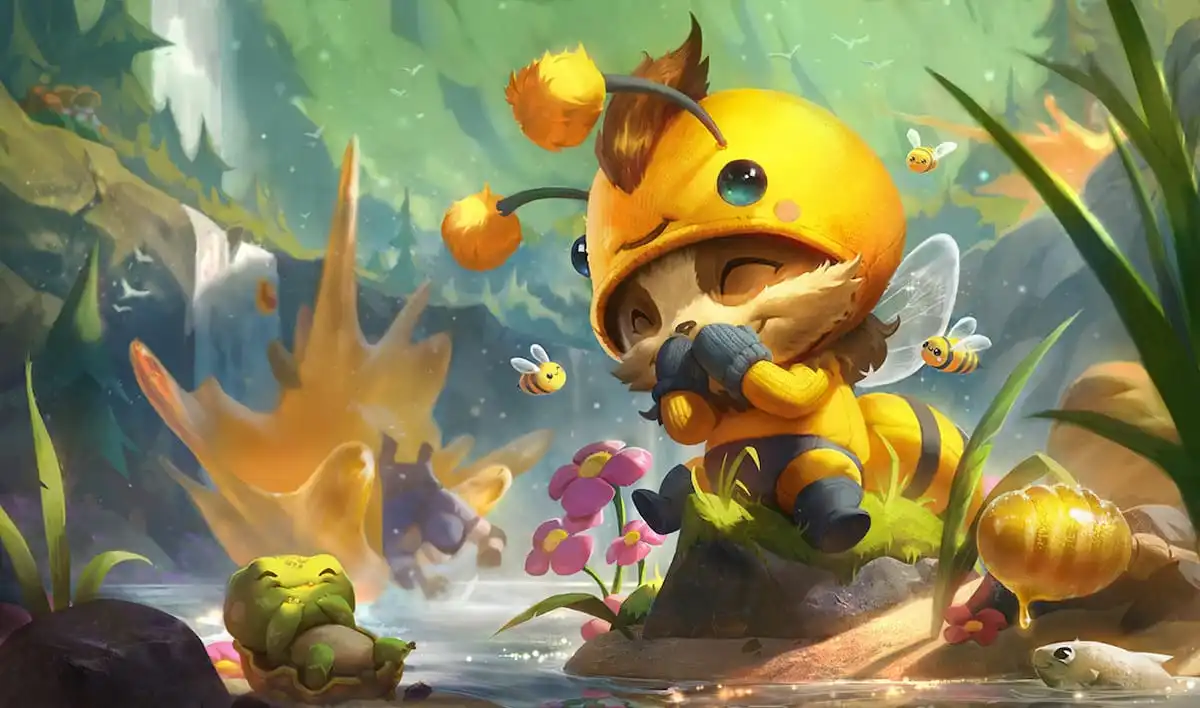KC “Woodbuck” Woods was hired as the Head Coach of Team SoloMid (TSM), North America’s most successful League of Legends organization, in mid-November of 2015, following the team’s group stage elimination at the Season 5 World Championship. The former high school baseball coach was given a star-studded line-up of players, differing from the one representing TSM at the most recent World Championship only at the support position, where Fnatic legend and multiple time EU LCS champion YellOwStaR played for a split.
The team initially struggled, in spite of their star power, going 3:3 over the first three weeks. After week five, Woodbuck was informed his services as a coach were no longer needed, despite TSM being on a four game winning streak, holding a record of 7:3 and being ranked in second place in the regular split.
In this interview, Woodbuck discusses his hiring for such a famous Western organization, the difficulties he faced in dealing with staff and players alike and the circumstances which led to his removal from the team.
When you were hired to work with TSM as their head coach much was made publicly about your sporting background.
My experience in coaching comes from three different avenues. First, like you said, simply being an athlete myself. I had played sports since I was a kid and began playing at a highly competitive level in baseball and basketball between the ages 12-19. During that time I played with and against many players that went on the play in the NBA or MLB. While in high school, I was being recruited to play baseball in college at a variety of school, but started to have shoulder issues when I pitched. I was still offered a spot on the Pepperdine University team, which is a top program, despite this. My Injury didn’t get any better and I had to have shoulder surgery before the season began. I tried to rehab but I was never to perform again at the level necessary to play in college. I wanted to remain in athletics so I turned to coaching. During that time as an athlete though, you experience coaching, team environments, team dynamics, etc at a really high level.
That brings me to my second source of experience, first hand coaching. I began coaching when I was 16 years old. I was hired by my pitching coach to conduct pitching lessons and classes for the students aged 8-11 years old. As I got older, I began coaching the high school students as well, many of which I developed into college athletes and professional pitchers. Then after my injury, I was hired to coach a high school in Santa Monica in baseball, basketball, and volleyball. Most of my success still came in baseball still where I helped lead them to a state title game (which we lost). Since I had multiple sports, though, I was coaching year around for a few years. After I got a 9am-5pm job, I had to stop coaching officially, but I was still volunteering my time as a coach on a part time basis up until the time I got hired at TSM.
Then my last source of experience is from my mentors. I have played or worked under a variety of top coaches. My pitching instructor is one of the USA baseball team coaches, my college coach is one of the best in the business, etc. I also worked with and was mentored by a California hall of fame basketball coach, Frank Carbajal. One of my close family friends was also a defensive coordinator in the NFL and NCAA for multiple teams. He was a mentor I relied on often while growing as a coach and also gave me access to wisdom from coaches like Jim Harbaugh and Nick Saban. As I hit road blocks or challenges in my coaching career, my mentors helped me over come them and grow. I continued to rely on them during my time at TSM as well.
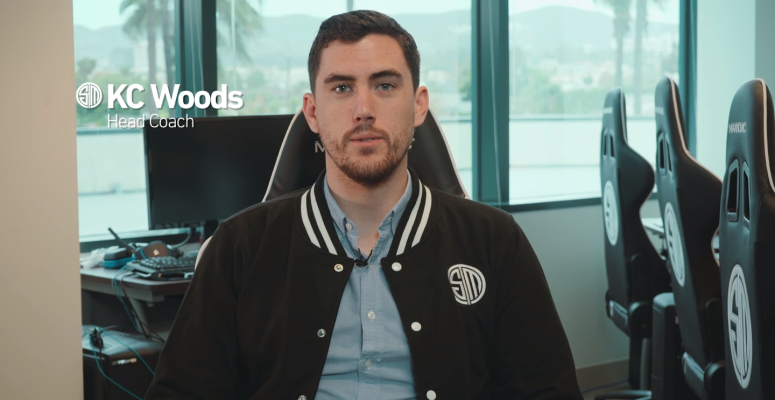
I saw a Reddit comment you made where you described applying to TSM as if it was a jape or just throwing a hail mary, figuring you wouldn’t get an interview and then once you did that they wouldn’t hire you.
So I used to be just like every other random fan discussing LCS with friends while pretending I knew better than the teams and experts, arm chair coach. When I first saw Coach Chris get hired at CLG, I thought to myself that he didn’t have any actual coaching experience, he just got a degree in coaching. A student manager for the football team is really not much more than a water boy or video coordinator. He had never applied himself as a coach and learned from experience, he just learned philosophies and how to coach from a book. At least that’s just how it seemed from his announcement. That’s when I first imagined coaching in the LCS and how much I would enjoy an opportunity, but it still seemed no different than thinking coaching the Warriors would be fun. Even though I saw where I may have more to offer than Coach Chris, I still was a random that just happened to have some coaching experience, I still knew nobody in the scene.
The Team Liquid position became available and I thought about applying, but didn’t think it was worth leaving my well established career for. Later, the TSM job posting went up. I joked with my friend how great an experience it would be to coach TSM. I fit the requirements of what they were looking for, and he encouraged me to apply. What the hell, I thought, it can’t hurt, so I went ahead and sent in an application not expecting to hear anything back. I told some other friends and we laughed about “what if you actually get it?”, but it was always just a hypothetical we didn’t think would happen. Then I got contacted by Parth for a phone interview. I thought I might make it at least this far because I felt like I wrote a pretty compelling application that outlined how I fit what they were looking for. After I talked to him, I bragged to my friends that I actually interviewed for the TSM job, but again had no chance of actually getting it, there had to be better applicants than me.
Next thing I know, they wanted me to meet with Regi. I met with him and Leena and they ran me through a bunch of scenarios that occurred in Season 5 and they asked how I would have handled the situations. I went home from that interview still thinking that it was awesome to have made it this far, but I still didn’t seriously consider it a possibility. Parth reached out later and said they wanted to extend an offer to me for the position, and for the first time I actually had to seriously consider it and if I wanted to leave my established job and my Master’s program to take a shot at this. I obviously ended up deciding I couldn’t pass this up and went for it.
This whole time, my girlfriend was also worried about me getting the position and I just kept telling her she didn’t need to worry about it because I didn’t have a chance… she wasn’t too happy when I actually did get it. I had to move out into the TSM house and give up a lot of time with her, but it was a sacrifice I asked of the players so I had to be willing to make the same sacrifice. Luckily she stuck through it all.
With it being TSM though, I just assumed that there was someone older who had coached at a higher level or had more experience that would be willing to jump into esports. With esports growing so much and so many people passionate about it, I thought there had to be a lot of qualified applicants. TSM is probably the peak of western League of Legends, with a few other orgs like Fnatic. The probability they would hire an unknown person didn’t seem likely and I was just shooting for the moon.
Can you elaborate on what you answered regarding the Season 5 scenarios they presented?
I can’t really give any specific examples, but mainly the questions had to do with team dynamics, cliques forming within a team, or conflict within the team. I am trying to remember how I addressed them though. I believe I told them that I would approach certain issues by trying to find the root of the issue and either attempting to fix that or finding a workable solution with the player. As an example, say a player spends more time focusing on something other than league (to the point it affects their performance with the team). I would sit down with the player and find out what makes that important to them and if we can come up with a plan together to balance both league and the other thing that is important to him.
In addition, I was and am big on finding player motivations and explaining why the issue prevents them from reaching other goals that are important to them so they can be self motivated to fixing them. I didn’t want to resort to discipline immediately and just forcing them to stop doing the other thing that was causing a problem, even though it could end up there eventually. In the example, the plan would be made together and detailed with defined guidelines that the player understands and knows he can follow. It also has to be something that he and I could monitor and follow his progress.
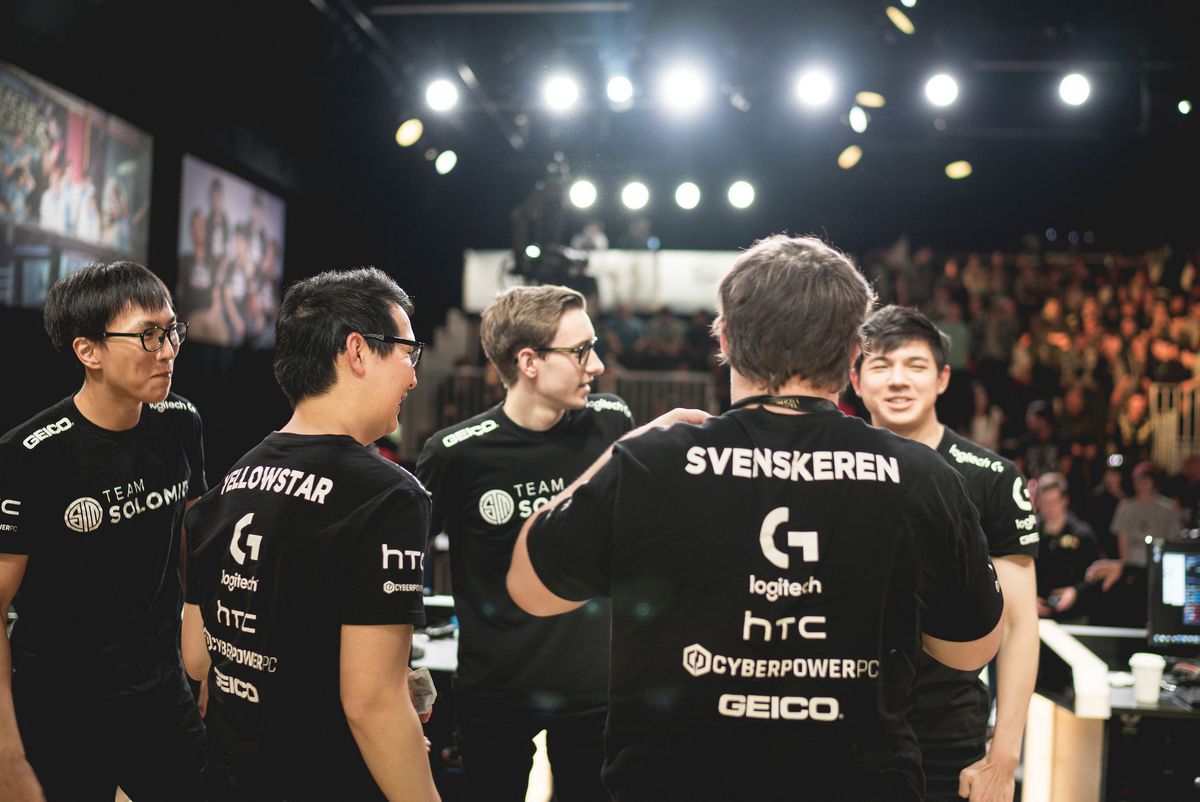
You’ve made comments which seemed to imply they didn’t initially bring you on as the head coach but rather their “life coach” or “out of the game coach.” Can you outline what your role was when you joined and if there were any changes made to it during your time there? What did they expect of you?
It was actually more of the opposite. The advertised the position as head coach and that was the job I felt worth putting my career on hold for. Once I was hired, they wanted to introduce me as the life coach, which felt like a bait and switch to me. That’s not what I was told I was hired for. With hindsight, life coach may have put me in a better situation because many problems arose that no one was capable of addressing, so it de facto went to me as the “head coach” even if it was an in game related problem. Having the distinction, even just in title, of being the life coach may have changed the players perspectives of what my responsibilities were. I guess my ego was too big to take what I saw as a demotion in title before I even started.
Regardless their initial idea of my responsibilities were the same at first. Jarge would handle the in game side of the coaching and I would make sure the players had what they needed outside of the game to perform at the highest level. When they hired me, the biggest reason they wanted me there was to solve and prevent conflict within the team, as that was the biggest issue within the roster in Season 5. This was a whole new roster though, so the same problems didn’t occur. There were no real conflicts with the players and they were all on the same page in terms of motivations and work ethic. Maybe because I did my job of preventing conflict in the first place too well? Who knows.
Other problems came up though so what I was expected to handle changed drastically. The team struggled with the mental aspect of the game and couldn’t get on the same page with how to play. In addition, players had bad habits from their past teams and they were not prepared to play as a team. While I had some experience personally with the mental aspect of sports, being a pitcher, I was not and never pretended to be an expert at it, so the mental issues were not something I was strong at addressing.
So initially I was hired to ensure they lived a healthy lifestyle (got enough sleep, went to the gym, had a healthy diet, etc), got along, facilitate discussion, manage the schedule, set expectations, and create attainable performance goals, while also acting somewhat as a team dad as the adult in the house making sure they kept the house clean and were responsible adults. Then when the split started we needed to start practice first without Jarge because he had Visa issues. So I had to conduct practice, as a silver V player at the time, and never observing a League of Legends scrimmage in my life. Once Jarge did get there, he also had no idea how to run a League of Legends scrimmage or train players as a coach. So there were two brand new coaches in the scene with a superstar team that was not meshing well from the start.
My role shifted as I had to begin attempting the fix the problems we were actually faced with. First, we didn’t have any structure to our scrimmages. We would scrim, talk about the problems that arose that game, scrim the next game, talk about the problems that arose that game, and so on. There was no discussion on how to fix the problems and we would constantly change the focus of what we needed to work on each scrim as new problems arose. I attempted to create a structure to not only identify problems, but break them down and work on them piece by piece. In addition, I wanted to prioritize our problems and systemically work on improving them one or a few at a time instead of hundreds at once.
I asked for help from management and the other coaching staff, and no one would help me. With my limited game knowledge, I could not effectively break down in game problems and determine how to work on them and I did not know which problems were the biggest issues. Without any help, I decided to just start writing down every problem that was mentioned during scrim review and look for trends. I kept a running list with the most common issues at the top and made the players review them before each game so they would remember what they needed to work on.
With the team struggling, they began to look for someone or something to scapegoat, so I was constantly having one on one meetings with players to work on their mental states as it was not a healthy environment. For the most part, they did not blame each other or themselves, but the coaching staff. Besides trying to fix all the problems that arose, my normal responsibilities included maintaining their schedule, developing an exercise program based on their goals, monitoring diets, attempting to monitor their ergonomics, preventative care, and sleep habits (all three of which I got a lot of push back on), conduct morning meetings teaching them concepts, communicating with the players with other problems or concerns that they had, ensuring the players focused, discipline, and more….
In terms of discipline, I started out with the mindset of trying to take players aside and work with them to understand why they needed to change their behavior (how it is affecting team and individual goals) and how we can fix it. After some time, it was apparent people weren’t going to listen or change their behavior on their own. In addition players asked me to be more disciplinary, so I began to have consequences for a lot of things. Some of the players didn’t like when I changed my tone to be my authoritarian around like week 3 of the spring split, but nothing was getting done otherwise and it was necessary at the time.
There were a lot of other things I tried to implement, both successfully and unsuccessfully, but that is the gist of it I think.
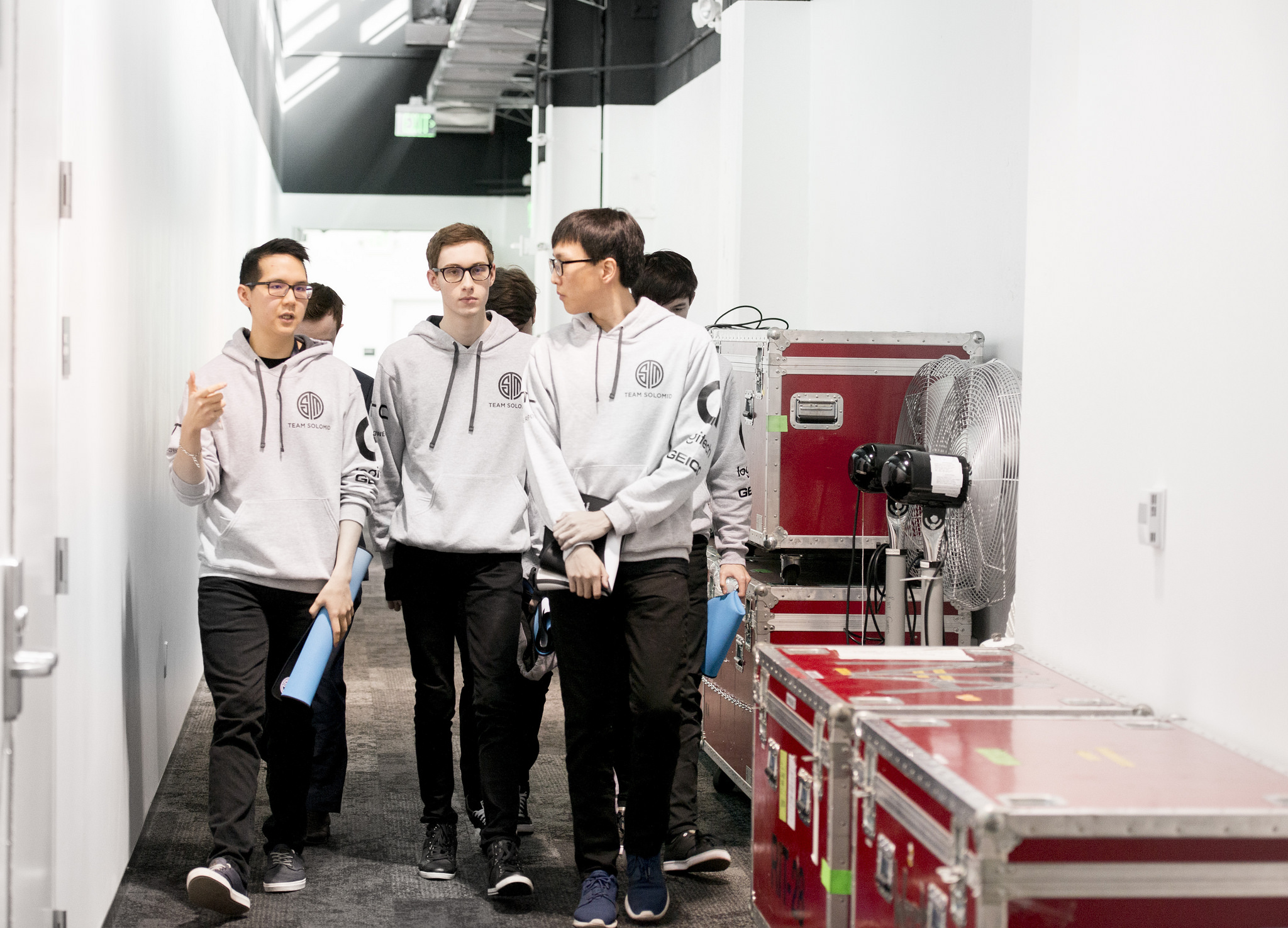
You’ve been entirely open about the fact you were a silver player and were not an in-game expert, and the situation with Jarge obviously forced you to take over in-game duties to a degree which was outside the remit of your experience. You’ve also spoken about the difficulty of getting players to treat you as an authority figure and having seniority. What is your perspective on where your difficulty in gaining that level of respect stemmed from?
It came from a variety of reasons, some within my control and some not. As I said and everyone knows, we struggled way more than expected when we started playing together. This made the players really against anything I was trying to implement outside of the game. Whenever I took time to talk about shared goals, team dynamics, lifestyle plans, etc. they players would ask “shouldn’t we be talking about the game?” As with other team sports, and you see in esports with teams like CLG, buying in to concepts outside of the game can be just as important. However, partly because of the circumstance, they players were very resistant to the things I was supposed to bring to the team. More importantly though, I lacked the skill necessary (and as you put it the charisma and gravitas) to convince the players the concepts I was bringing were just as important to improving as talking about specific in game problems. Weldon had that innate ability (he also had the advantage of being extremely hyped up by Doublelift before he showed up) to get the players to buy in to these other concepts by using a variety of methods. I failed at that even though many of my concepts were exactly the same as his.
You don’t need to be high elo to get the players to listen to you. Weldon is even worse at the game than I am and he had them hanging on every word. Parth is Platinum, but he was able to break down macro concepts really well so the players clearly understood their role in certain situations. Jarge and I struggled, on the other hand, to convince the players that we brought value. The players would argue with Jarge and he couldn’t back himself up or always deferred to their expertise. I wasn’t convincing enough or didn’t use effective techniques (such as ones that let the players come to the conclusion themselves without me telling them).
Another reason I struggled to gain their respect was I was thrown into so many things that I shouldn’t have. With no one capable of running things in game, I tried to take on that responsibility. While certain people may be silver and able to understand the game well enough to coach LCS caliber players through the game, I had never studied the game or been exposed to competitive League of Legends practices before I started at TSM. Attempting to do these things outside of my expertise, out of necessity, when I started TSM, the players saw right away I wasn’t proficient and it made them second guess my competency in everything else I brought to the team.
Lastly, there was an environment set that if the players didn’t like something I did or implemented, they would go to tell management. Players, especially ones of TSM caliber, are rare and hard to replace, so management would constantly side with them and tell me I needed to change what I was doing. Not having any backing from day 1 hurt my ability to be effective.
It still all came down to my own ability. If I was more capable or competent at coaching, I could have overcome the obstacles that I faced. I needed to be able to show value and convince the players that my concepts were useful. Unfortunately, I wasn’t able to at the time, but failure is where you learn the most valuable lessons, so hopefully I can improve in the future whether in a coach or manager capacity.
How many of the team’s issues were actually in-game and how many were out-of-the-game, in your estimations?
I’d say all the most glaring issues at the beginning were in game. The players didn’t agree on how to play the game and were constantly not on the same page. Some wanted to be aggressive others didn’t. In addition, a couple of the players had no semblance of knowing what information was necessary to communicate in the game or when to communicate it. Those habits take a while to ingrain.
The main out of game issues were attitude. Not getting to meetings on time, looking at reddit before and between scrims, not wanting to do other things required of them or not putting in full effort to things besides the actual scrimmages. Tilting during scrims were also an issue and something TSM expected me to solve immediately. I don’t think it is that easy to just solve tilting otherwise everyone would know how to do it. It varies greatly on a situational basis and individual basis. I also think the main reason for the tilt was the mindset of scrims which I tried my hardest to change while I was there.
The players cared more about winning the scrim than learning from it. If they lost a scrim they would be devastated, it didn’t matter if we were working on an in game concept. I tried to change the mindset that to focus on improvements and that starts with knowing exactly what we were working on each game and then being able to measure the improvements. I wanted that to be what was important at the end of a scrim… but I wasn’t super successful changing the mindset for a variety of reasons.
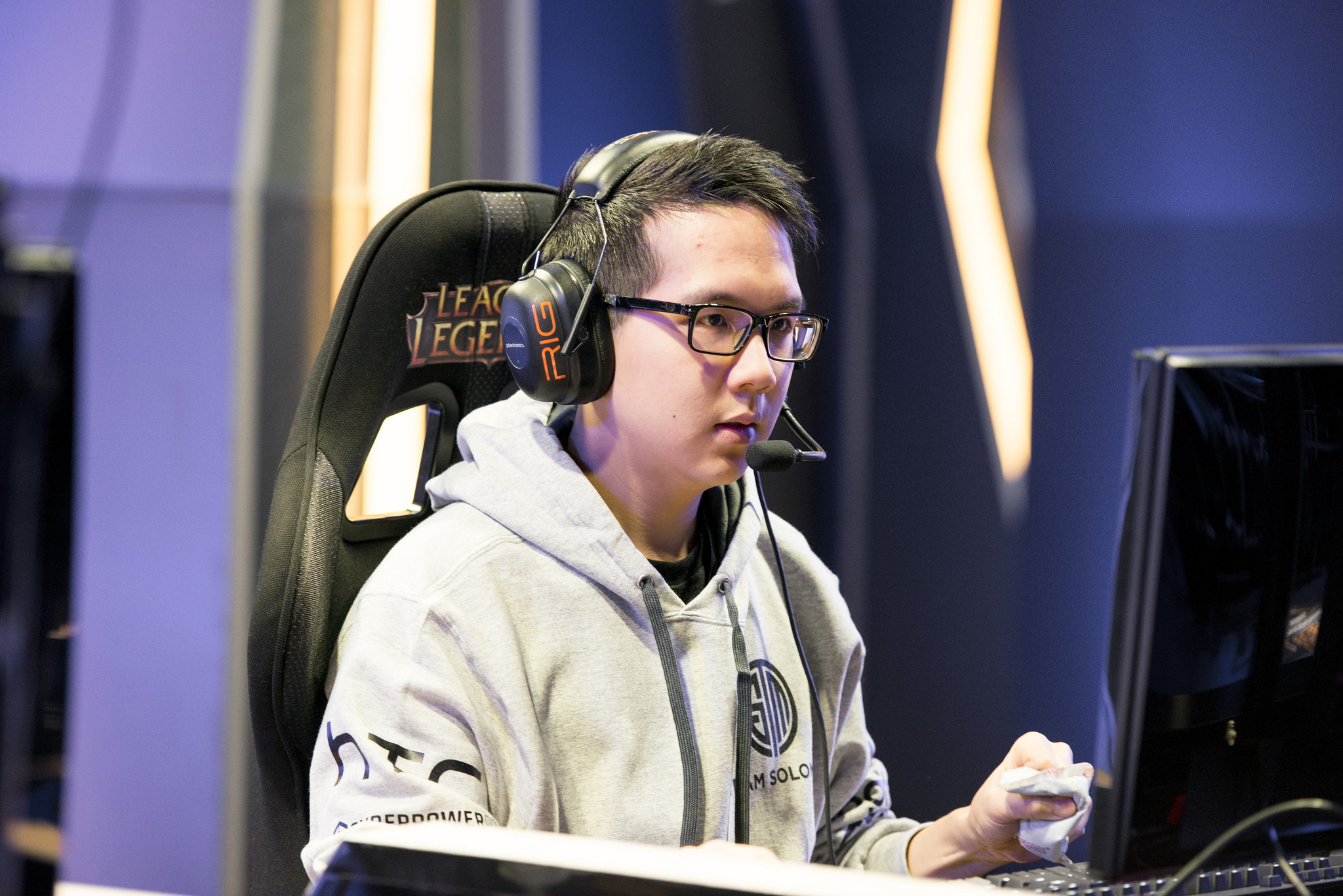
When TSM let you go they described you as “ineffective.” Do you know what they meant by that and is there anything you can agree with on that or are there areas where you disagree? You’ve said you took the “long con” approach to some issues, which meant potentially things getting worse short term to try and address larger issues in the long run. Do you think that affected how you were perceived negatively or meant that you set things in place which the length of your tenure meant never had the chance to see come to fruition?
TSM as an organization and its fan base expect results. When I was hired, it was turned up even higher as the team was the best TSM team ever assembled on paper. The team struggled from the start and everyone wanted someone to blame. The person learning the ropes the first few weeks is an easy target. I do think the head coach does have that responsibility though and I do take responsibility for the overall performance of the team. Even though we were in sole possession of 2nd place when I left, it was not as convincing as expected.
I do agree the players deserved someone more effective and qualified than me. They are playing at the highest level in this sport and there is a lot on the line. I strongly believe I brought more to the table than almost every other coach in the LCS, besides a couple. While all the players in the LCS deserve a high level of coaching, the talent is not there and teams have not been willing to pay enough to get adequately qualified staff.
I also believe I could have been effective enough to turn things around given the proper support with what I wanted to accomplish (such as implementing a structure for identifying, priotizing, and systematically working on problems; immediate, not delayed, feedback when players repeated something we were working on fixing; increased focus; improved attitude; and more). Much of what Weldon is attributed with “fixing” are things I either began implementing or attempted to implement in the same way. It does fall on me. It is still my ultimate responsibility to successfully implement everything, and in that sense, I agree that I was ineffective in doing so.
I had a “long con” approach out of necessity, not by choice. I would have loved to have a quick way to fix the issues that we ran into. The issues we had were firmly in long established habits that we needed to break. Players were in the habit of playing either passively or aggressively and to get the others on the same page or all on the same page, takes time to relearn. Also, communication was severely lacking and also needs time to learn and break the habit of silence or unnecessary communication.
In general, when you are forcing players out of their comfort zone, they will play worse until they get comfortable with the new way of playing or communicating. I knew that we would need the time and our immediate play may suffer in exchange for long term success. Unfortunately, TSM’s expectations are so high and the pressure is so great, struggling at any point wasn’t accepted.
Once you said was that you were surprised by how little money there was for support staff, including yourself. Obviously you can’t cite figures, but can you expand upon that and what more is needed or how it contrasts to other sports or jobs?
Well I had to take a substantial pay cut from a position barely above entry level job in education (which is notorious for not having high wages). I also had no benefits and was hired as an independent contractor. It was also a 5 month “trial” contract, similar to what they announced Weldon (a more proven commodity than me) to have. How is that attractive to legitimately talented coaches? I valued the chance at taking a shot at a passion of mine, and I think that is something many teams count on when hiring for these positions. The people who are actually valued for their expertise in coaching are already being paid decent amounts to coach a sport they love. If teams want to improve their support staffs they need to be willing to pay salaries and provide benefits that are attractive to the talent equal to the players they have.
This is a professional sport with millions of viewers. The players are elite at what they do, but the coaches they are provided with are for the most part subpar. I think the players deserve better. I think if the coaches perform at a high level similar to the players, they deserve pay representative of that as well. Not only is the skill required from the coach valuable, they put in similar hours to the players and need to sacrifice their personal lives too.
At the very minimum, I would have even just have liked to have had a budget to hire additional staff to take some of the responsibilities off of me. While I felt like I had the expertise necessary to do things like develop a work out plan or develop/maintain a nutritional diet for the players, I felt like I wasn’t able to put my full effort into everything as I had to juggle my time between so many things.
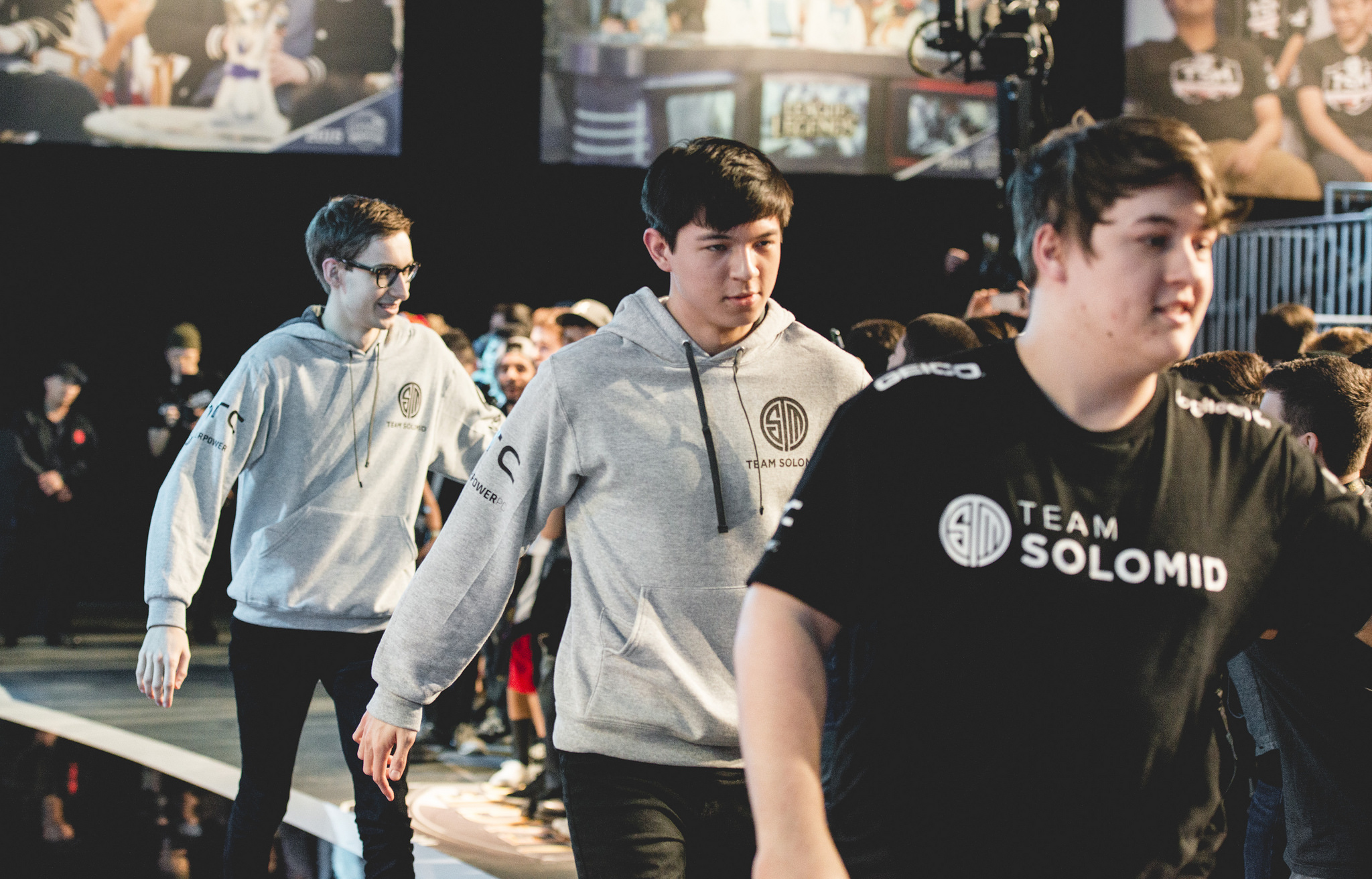
When you were coaching the team they were 7:3 and had improved in the last weeks. Can you outline what seems like a confusing situation from the outside as to why you were let go at that point in time when the team had the most successful portion of the split?
Within 1 week of LCS Regi and Parth decided that I was not effective and wanted to let me go. I outlined what I had implemented and what I was in the process of implementing. They said they would give me one week to show an improvement and to could gain the respect of the players. I tried to do more the next week but extended myself too far by trying to address all of the problems that I did not have the ability to handle (the in game issues no one else was attempting to step up and fix), so things got worse.
They were going to let me go after week 2, but I told them they hired a brand new coach and weren’t going to even give them a chance to learn and improve? No performance plan that we could review and ensure I was meeting goals? Regi told me I could either take a month off and look for other jobs or work and try to show improvement for one month. I chose to keep working for a month because I already quit my job for this so I might as well take the only chance I had to keep the position. Still no performance goals or improvement plan, but it was better than nothing. I felt I drastically improved. I took a day off and came back with conviction and took things under control. Different players told me they noticed a big improvement in my coaching, completely unsolicited.
However, I felt TSM Legends was purposefully portraying me in a bad light. I would feel my week went extremely well compared to weeks past, but somehow TSM Legends would pick out the one or two things in the entire week I would think “I hope they don’t put THAT in TSM Legends”. Without fail, that was the only part of the episode that I would be seen in. As a result, I posted this after a clip I felt was a detrimental to my reputation.The players already didn’t respect me and by putting content out that made me look worse and having comments validating their thoughts, it made it even harder for me to do my job. I felt I needed to clarify this in public. Regi and Leena had asked me after IEM to not use or post on social media (there were concerns I was too worried about gaining my own popularity), so they weren’t happy when I posted on Reddit criticizing their decision how to portray me on the show.
What I didn’t anticipate was how defending myself would turn the fans against Bjergsen for talking back to me. He didn’t deserve it and it was not my intention. Regi held a team meeting and I now had management and the players against me. Even though my month to prove myself wasn’t up, they determined I had not improved enough to warrant keeping me and they voted me out. I regretted defending myself and caring about social media. I went back to the TSM house took Soren [Bjergsen] aside and sincerely apologized and then said goodbye to the team. The team continued the split by going 2-6 after I left and the rest is history.
I do want to stress that my abilities as a coach and what TSM needed did not fit. The issues that arose were different than the issues that they thought I was good fit for addressing. I also understand the environment at TSM doesn’t lend itself to waiting for a coach to catch up in experience, but I don’t believe they should have hired two rookie coaches knowing that as well.
A concept I read in a book about the mental aspect of coaching tennis is not to overload the student with too many possible changes or fixes, even though they may all be legitimate, as the effect will kill their game in trying to fix them all at once. Rather to kind of narrow it to an aspect or a few and attempt to correct that before moving on. What do you think of this and can you narrow down the broadest strokes of what the issues were during your time?
That is exactly what I felt the problem was between scrim blocks. Jarge and the players would have new problems every game and it was overwhelming… impossible to work on all of them at once. I wanted to focus on the main issues and ignore the smaller issues for now until we got the main issues under control. I think you are referring to something else though.
Probably two main issues with both being extremely complicated within themselves:
1) Communication. Players had bad habits from other teams either not communicating at all or not know what to information was important to communicate. This was either because of language barriers they had on certain teams, they had played together long enough to know their teammates thought process, or simply playing on a team that played more similar to solo queue. Communication is extremely complex though and you can find a different problem with it every game. Every situation can be unique and require a different type of communication.
2) Play style. Coming again from five separate teams, they all had different ideas about the best way to play the game. They would constantly argue (in a constructive manner trying to get to a agreed upon conclusion) about how to handle certain situations. Someone needed to be the authority figure that was respected enough to tell the players what was the way we were going to handle situations going forward.
Since both of those two things are complex and made up of a lot of small independent instances throughout a game, the main issue was bringing it all together. We needed to go through the basic concepts of the game. Vision control, using TP advantage, wave control, diving, etc and break them down to all the steps involved. Talk through what communication is needed for each step and how we will play through the basics. We then needed to pick a concept or two to focus on for the day or scrim block and ensure that every player knew there role. Between scrims we would then review how the players did in their roles for the concept we are working on. Over time it would lead up to overall communication and getting everyones playstyle on the same page, but it needed to be broken down, explained thoroughly, and then focused on a bit at a time first.
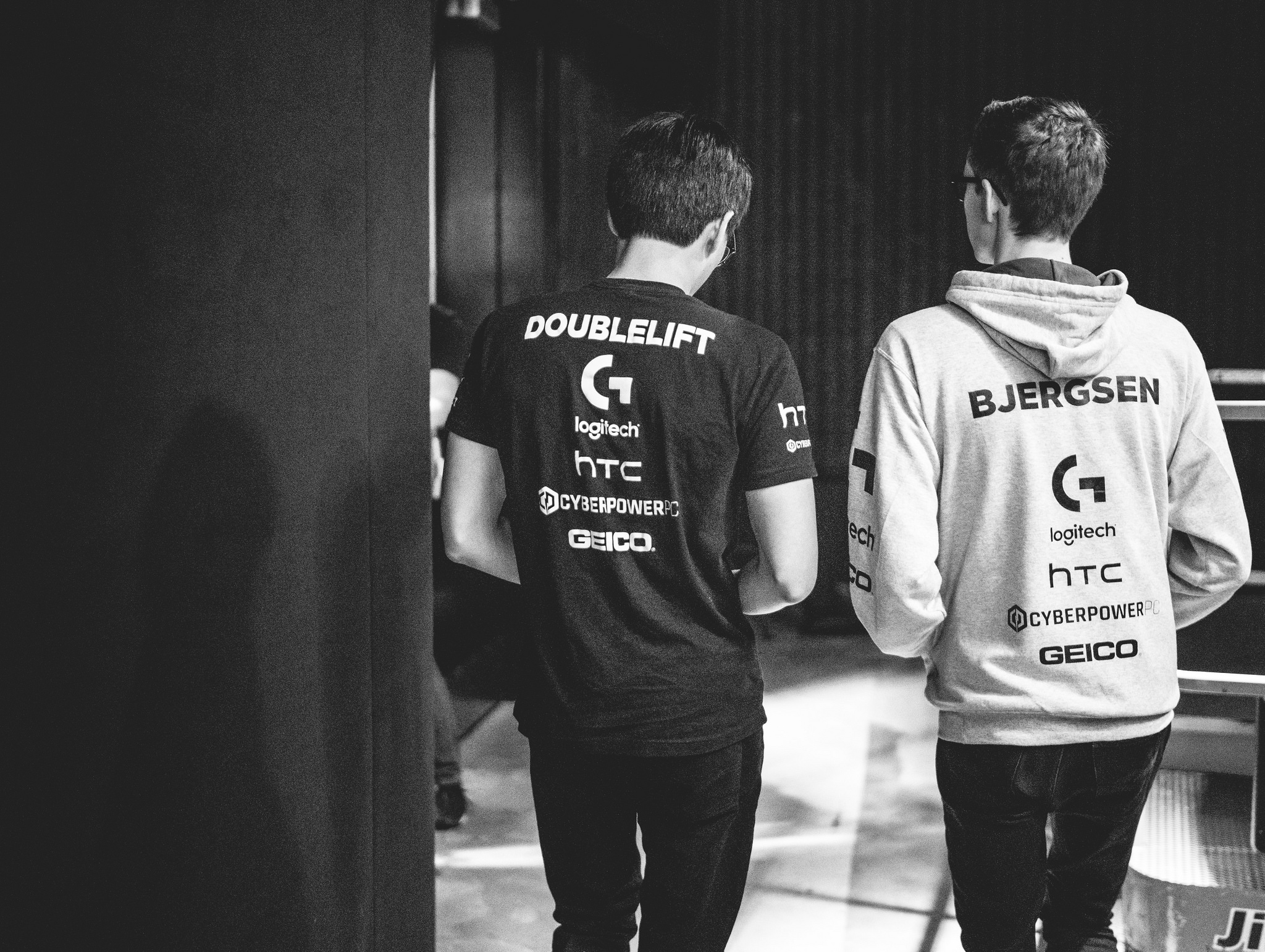
What do you think about TSM’s results after you were let go? On the one hand they did go 2:6 and finish in 6th place and with the worst record and regular season placing in their history and on the other they made a playoff run to the final. Are there any conclusions you draw from what took place afterwards?
I think the results show a few things. One, it shows that I may not have been as detrimental to the team as they thought. Some of the concepts I attempted to instill in them on a daily basis did potentially have some merit even though the results of those concepts aren’t as immediately apparent as fixing something in game. Two, it shows that the issues that they needed to fix really did need time once they were properly addressed. They weren’t going to be fixed overnight and there would be a lot of struggle before things ultimately got better.
From TSM’s perspective though, they fired me because they did not think I was effective or had any positive impact on the team. The results immediately afterward did not matter because I was not going to be part of the solution.
Personally, I don’t know enough about what happened after I left to know what they ultimately fixed. I assume they were able to breakdown concepts and work on learning them one step at a time like Parth talked about in his season reflection article (axioms/structure he created). In addition, Doublelift and Bjergsen were the two players that knew what resources and information were necessary for certain plays. From what I heard they began to take a larger part of the shot calling which helped alleviate the issues in their communication.
To be honest, I didn’t watch many of their games in depth after I left…. still stung quite a bit… so I didn’t see what parts of their gameplay specifically looked improved once playoffs came around.
How would you summarize your time with TSM as you see it now, many months removed?
I still go back and forth to this day. I have done a lot of self reflecting and I know if was a better coach and had more experience, I could have overcome the hand that was dealt to me. At the same time, I feel like I was dealt a pretty bad hand. It is more productive to focus on myself though and what I could have improved because that is the only aspect of the experience that I had control over and have the ability to work on going forward.
In summary though, I was hired for a job expecting it to go a certain way, and circumstances ended up significantly different than expected. I had to attempt to do everything without the support from anyone else on the staff or the organization. In the end, I bit off more than I could chew, I didn’t do as good of a job as I could have, and I lost the players respect as a result. It was probably the most stressed and miserable I have been in my life. I had anxiety on a daily basis, which I never had before, and I had to sacrifice every relationship in my life. I wouldn’t trade the experience though for the world. The only way to learn how to improve myself in a lot of ways is through experiencing and failing first. I learned a lot about myself from doing that so I can be stronger and more successful in my future. I took a big chance to pursue a passion of mine and I gave it my all at the time. I never have to look back and think what if?
Do you think the public’s perception or word within the industry would prevent you from attempting to or being hired to coach at an LCS level again?
Probably as a coach. I had an attempt at being a coach and failed at it with arguably the most talented NA roster at the time. At the same time I was being portrayed as useless publically. The TSM organization’s word carries a lot of weight and I doubt they have many good things to say about me.
I could have put more time into building up my reputation through other means, so I don’t think it 100 percent prevented me from working in the LCS again as a coach. I have no interest coaching at the LCS level again though. I can’t afford to take a chance again leaving my career and education for extremely low job security. For the most part, I reached the pinnacle of NA LCS coaching and I already failed, time to move on for me.
I do think that I have carried myself in a professional and mature manner and shown myself to be competent in many different areas. I do think I could be more seriously considered for other positions within an LCS organizations. Groups interested in purchasing spots have been interested in me for that, but it would have to be the right fit and on a part time basis. Overall, doubtful.


